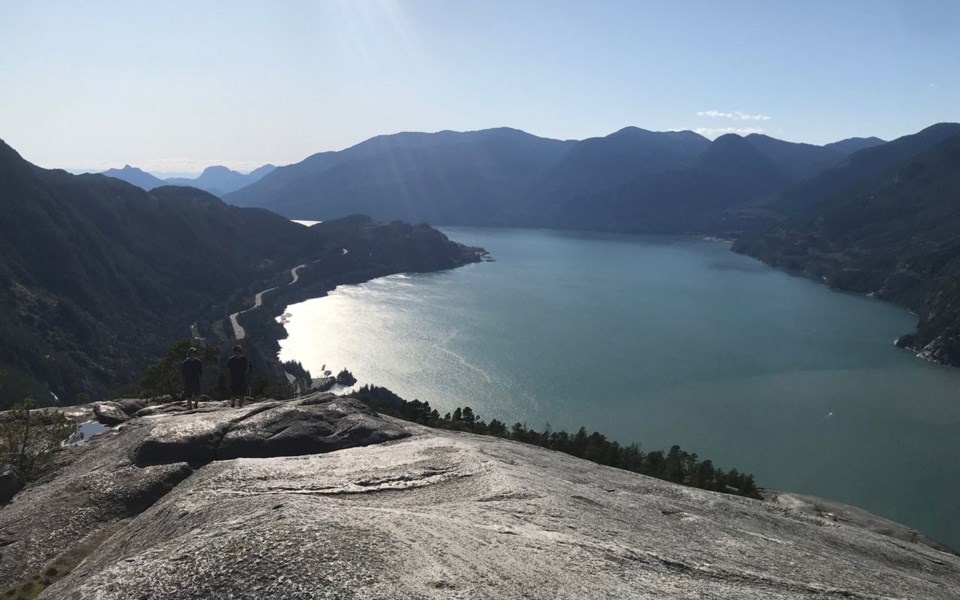Like many people in the Sea to Sky corridor, I commute to work.
As the discussion about climate change intensifies, I feel increasingly guilty about logging hundreds of kilometres from Squamish to Function Junction each week. (I do occasionally carpool, but it's often logistically challenging for myriad reasons.)
Living outside the community where you work is not ideal. It's incredibly expensive, bad for the environment, and, frankly, dangerous navigating the Sea to Sky Highway, especially once those summer-tire-clad rental cars start hitting the snowy road.
But it's the reality for a large number of people in Squamish, Pemberton and Mount Currie. While people have different reasons for commuting, often it's rooted in sky-high housing prices and lack of availability in Whistler.
But it's not just work that sends people up and down the winding highway regularly. Our corridor community is uniquely and deeply intertwined. We play on sports teams together, attend arts events in each other's communities, and access services that are only available in certain places.
To that end, when Greyhound ended its services to the area last fall, it deeply impacted options for carless residents.
Frankly, I'm lucky to have a vehicle to get around, even if it adds to my guilt over my carbon footprint.
That's why when BC Transit, the B.C. Ministry of Transportation and Infrastructure, TransLink, and Sea to Sky local governments (that includes the Squamish-Lillooet Regional District, the District of Squamish, the Resort Municipality of Whistler, the Village of Pemberton, Lil'wat Nation, and Squamish Nation) released the Sea to Sky Regional Transit Study almost exactly two years ago in October 2017, there was a glimmer of hope that we might soon have more options.
The study proposed transit service ideas for buses that would run through Whistler, Squamish, and Metro Vancouver—and bolster the already existing service between Whistler and Pemberton. There would be 15,000 hours of service each year with six round trips on weekdays and four round trips on the weekend through Whistler to Metro Vancouver.
The catch? The province and Sea to Sky local governments had to come up with a governance and funding model before it could be put into place.
The goal was to have service up and running by fall 2019 (a.k.a. now), but as early as this spring, it started to become clear that that wasn't going to happen.
Two years later, and we're still waiting for officials to make headway.
The sticking point seems to be the funding, as Whistler Mayor Jack Crompton pointed out after the issue was discussed at the Union of B.C. Municipalities back in September.
Sea to Sky governments want to see a motor-fuel tax implemented to pay for regional transit, but the province isn't interested in that route.
"...Without a funding model, we are unlikely to see regional transit in the near future," Crompton told Pique in an Oct. 2 story.
Something needs to change—and fast.
Hundreds of people marched in Whistler's Climate Strike on Sept. 27 and thousands more joined Swedish activist Greta Thunberg in Vancouver last Friday, Oct. 25. Residents are demanding that government do more to curb climate change and this is a perfect example of concrete action that would make an immediate impact.
Discussions might be at a standstill and, at this stage, it seems like the province is to blame. Our MLA Jordan Sturdy has called the rejection of the motor-fuel tax "pathetic and stupid."
"I do not understand what their objection is. And they have refused to share with us why they don't support it," he said, in an interview with Pique. "It's good enough for the Capital Regional District and it's good enough for Metro Vancouver, but it's not good enough for the Sea to Sky. And why it's not good enough for the Sea to Sky is a ... mystery to me. And it's really, really disappointing."
But regardless of who's to blame, it's up to our leaders to come up with an idea that works for both levels of government. In the meantime, as a new crop of seasonal residents move into the area, our collective commuting footprint will continue to grow.




